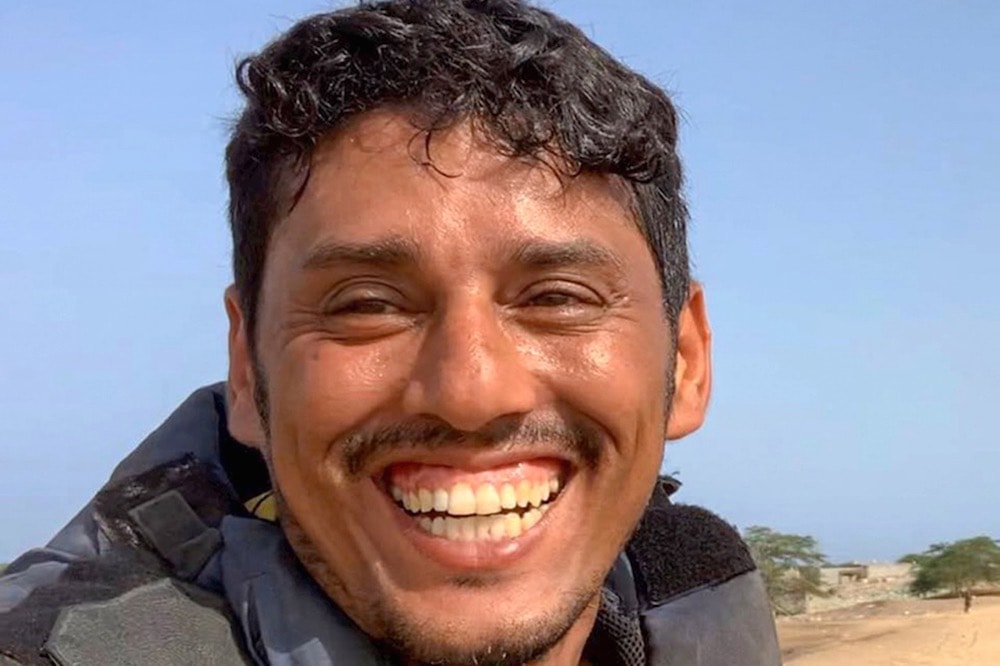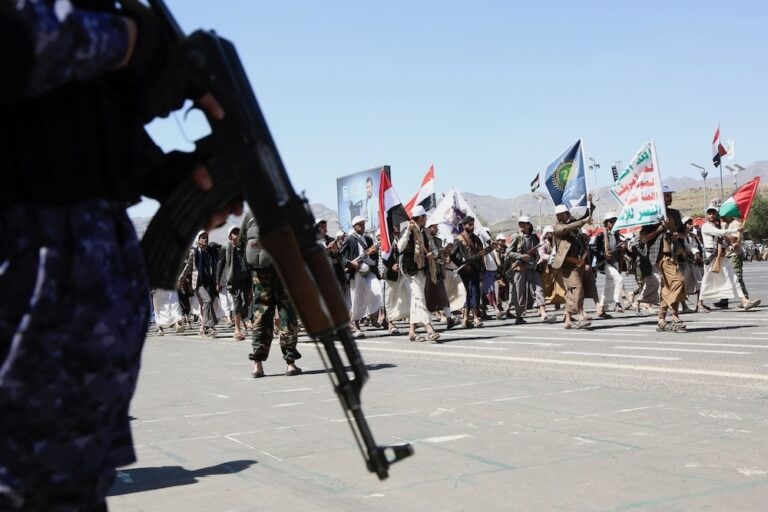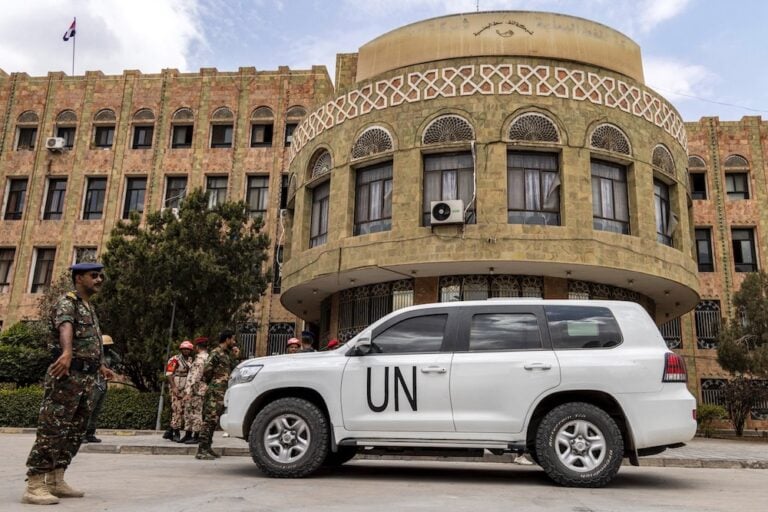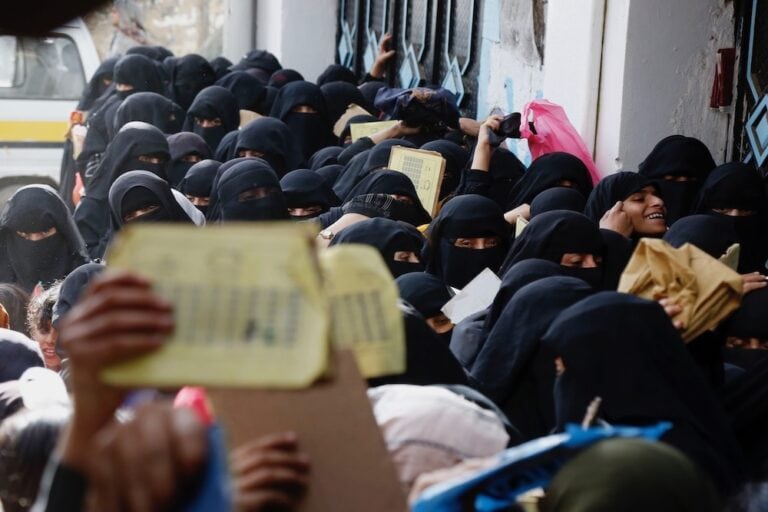The murder of photojournalist Nabil Al-Qaiti and arrest of journalist Abdullah Awad Bakir highlight an increasingly alarming environment for journalists in the country.
This statement was originally published on gc4hr.org on 3 June 2020.
The Gulf Centre for Human Rights (GCHR) is extremely concerned at the threats to journalists for doing their jobs in Yemen, including the murder of a photojournalist and ongoing arrests of journalists throughout the country.
On 2 June 2020, unidentified gunmen assassinated photojournalist Nabil Al-Qaiti, near his house in the city of Dar Saad, which is one of the southern districts of Aden Governorate. Neighbours transferred him to the hospital, but he died when he arrived due to the injuries he sustained.
According to local reports, someone in a car first attempted to hit him while he was talking on his mobile phone near his house, forcing him to hide behind a minibus; the gunmen in the car then surprised him with a hail of bullets.
Al-Qaiti worked as an AFP correspondent, and posted a tweet on his Twitter account just two hours before his assassination. Khalid Ibrahim, GCHR Executive Director, said, “He was always carrying his camera together with his warm smile, and never carried a weapon. Why did they kill him?”
Al-Qaiti’s death was followed by widespread tributes from his colleagues and other journalists. Huda Al-Attas, a Southern Yemeni journalist and author who has won a number of awards said on, her Facebook page: “Your camera lens was stronger than the barrel of the newest cannons.”
In a separate case, on 27 May 2020, security forces in Hadramout Governorate arrested journalist Abdullah Awad Bakir in the city of Mukalla. The authorities confiscated his car and other belongings upon arresting him.
The local authorities have not announced the nature of the charges against him, although some military sources have confirmed the news of the arrest, accusing him of committing a violation of the military law.
Some of his colleagues told GCHR that the reason for his arrest was the publication of a photo of a tissue box on which is printed an image of the governor of Hadhramaut, Major General Faraj Al-Bahsni, who is under the authority of the government of President Abd Rabbo Mansour Hadi. The image caused widespread criticism of the governor by Internet activists.
Bakir’s family issued a call in which they hold the governor of Hadhramaut responsible for his arrest. The appeal states that they were prevented from visiting their son and checking on him, even by phone, at a time when visits are not permitted due to the spread of COVID-19.
Bakir is one of the most prominent journalists in Hadhramaut Governorate, and uses his Facebook page to follow up on citizens’ issues and publish their important news.
His arrest follows other arrests of journalists in Yemen at the hands of various authorities, who have failed to respect freedom of expression.
GCHR urges the authorities and all parties to the conflict in Yemen to:
- Immediately and unconditionally release journalist Abdullah Awad Bakir, and all other journalists detained in Yemen;
- Open an immediate, independent, impartial and thorough investigation into the murder of Nabil Al-Qaiti, with the aim of disseminating the findings and bringing those responsible to justice in accordance with international standards;
- Ensure that all detained journalists and other prisoners of conscience are held in humane conditions and have access to lawyers and family visits and calls;
- Ensure the physical and psychological integrity of journalists and prisoners of conscience during their detention; and
- Ensure that all journalists are able to carry out their work without fear of reprisals and free from all restrictions, including judicial harassment and the persecution of their families.



